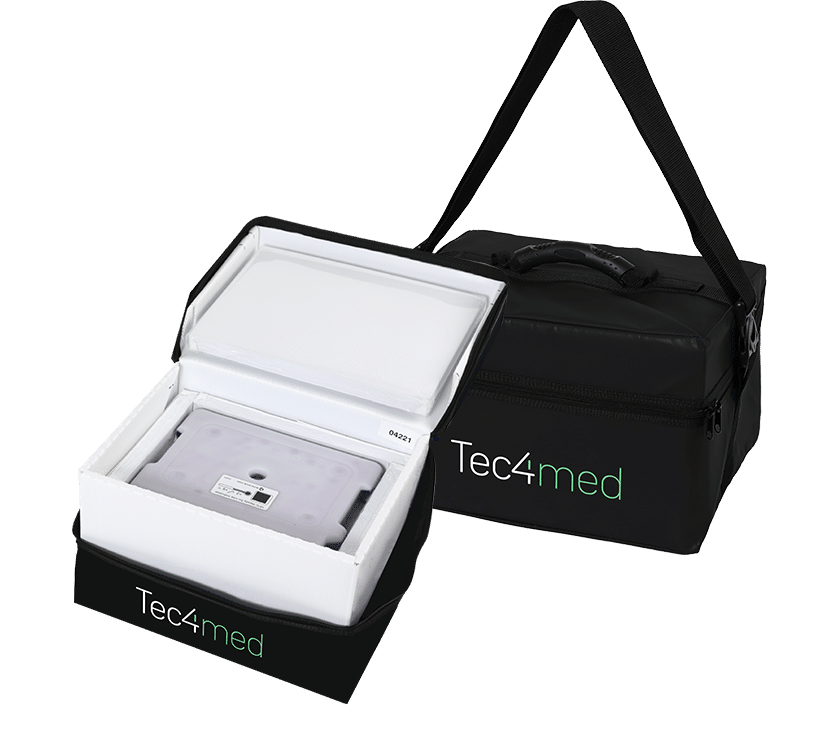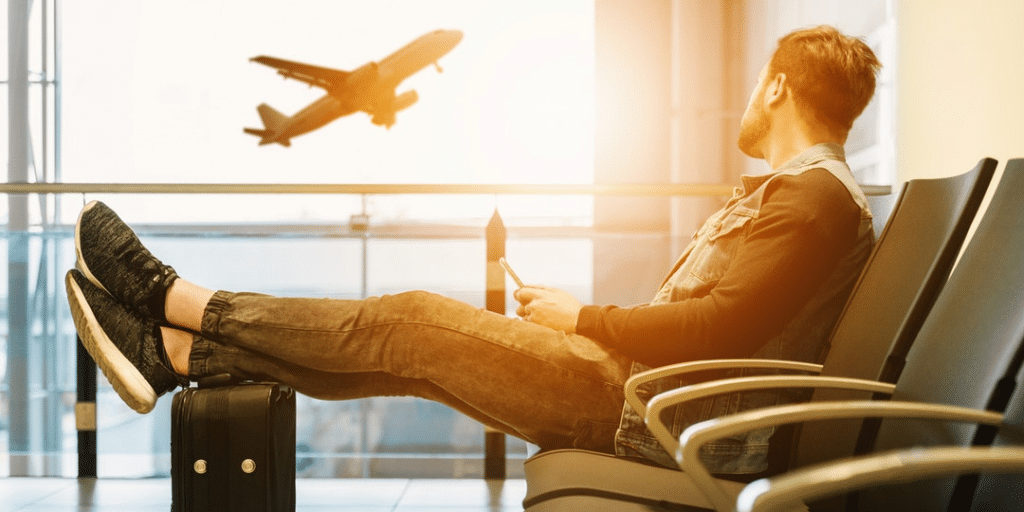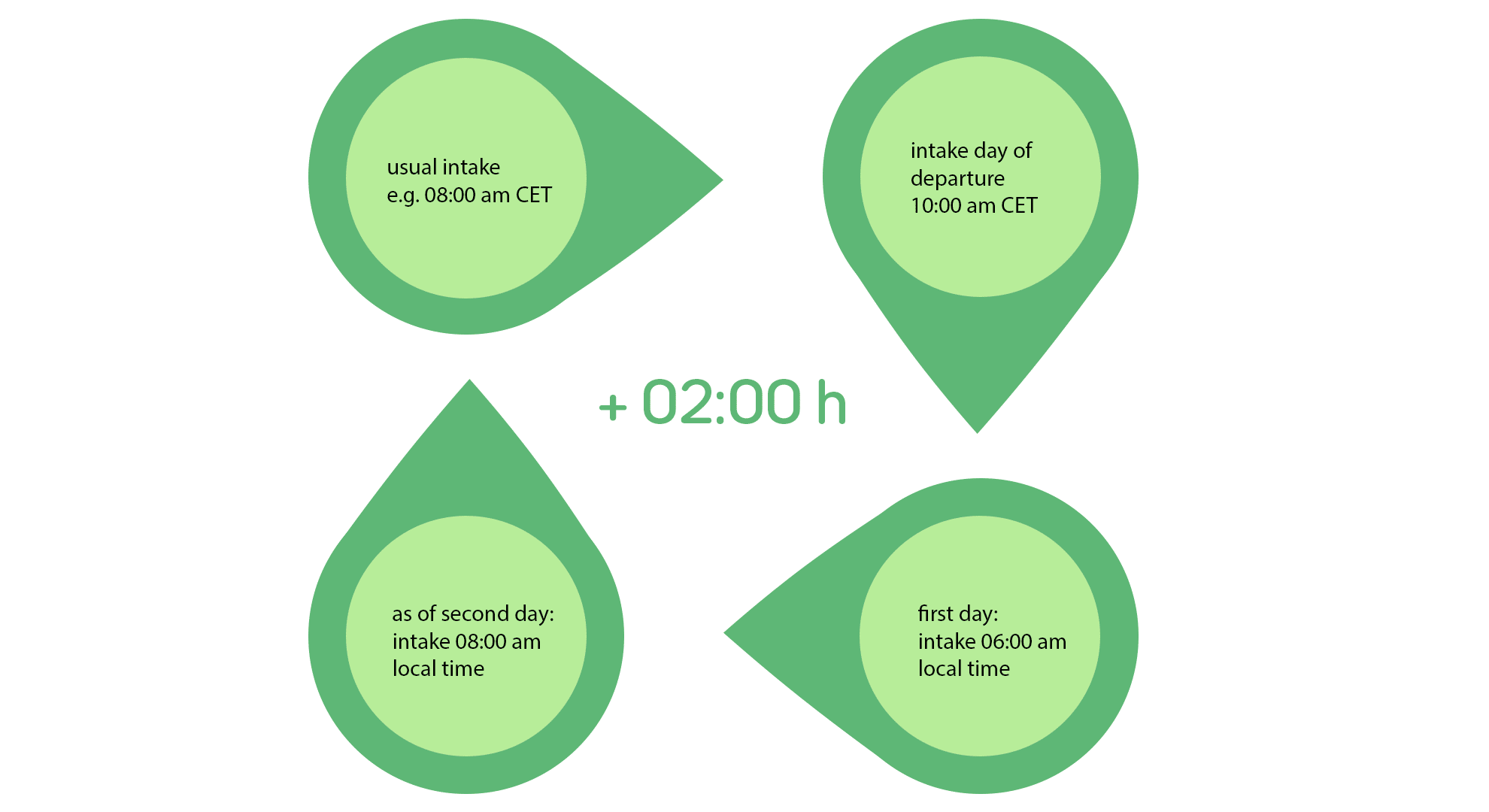Flying with refrigerated medicine – Travelling itself, be it a business trip or a holiday can be stressful. Add to that the fact that you are relying on medication that needs to be constantly cooled to +2° C to +8° C, and it doesn’t make it any easier. But how to keep medication cold while traveling? As a helping hand, this travel guide takes you through all the important steps before you start your journey, on the road or on the plane.
We also provide you with the right medicine coolers and medicine cooler bags 2-8 degrees, to take your medicines with you. We explain why conventional cooler bags and storage in the (hotel) refrigerator can sometimes be dangerous.
Let us surprise you with how you can travel carefree and easily, even with highly sensitive medicines.
Active or passive cooling for refrigerated medicines on the plane? How to travel with refrigerated medicine.
First of all, a little information on our own behalf: Tec4med offers you various solutions for taking your medicines with you on trips and for refrigerated medicines on the plane. Flying with refrigerated medicine was never easier! We distinguish between active and passive coolers. Active devices cool your medicines reliably and precisely to the desired temperature using battery and house current. Passive boxes use phase-change material (special phase-change cooling batteries) which must be prepared in advance in the freezer or refrigerator. Due to the high-performance insulating materials, passive solutions are in no way inferior to active boxes.
Tec4med Tip: When buying coolers & cooler bags, make sure they comply with ISTA & AFNOR summer temperature profiles. These are test standards that test cooling under extreme conditions (such as high summer temperatures in holiday countries). Many conventional cooler bags can only maintain the temperature for a few hours under such conditions and thus endanger the stability of your medication and your health.
Cube (passive cooling)

Advantages:
- Cooling by PCM cooling batteries (approved for hand luggage on planes)
- Medication Cooling bag 2-8 degrees
- Long runtime thanks to high-quality insulating materials (min. 60 hours)
- Cooling batteries are robust and reusable
- Recording (optional) of temperature, moisture, location
Consultation

Before you dive deeper into planning a trip, talk to your doctor first. He/she will provide you with useful advice. It’s not the first time your doctor will hear these questions. He/She can answer out of the experiences of others that went through the same struggles you are facing right now. Also, make sure your doctor gives you a document that states your disease and your need for the medication, including the exact names of the pharmaceuticals you will travel with. This is necessary to cross borders and security checks at the airport.
Preparation for flying with refrigerated medicine
Next, make sure to have an extra amount of your drugs that exceed your estimated length of travel. There is always the possibility of losing a package. Sometimes these expensive goods get stolen. Having an emergency unit of drugs with you can save time, money and in a dangerous situation, even your life.
Before leaving your home, make sure you took care of an unbroken cold chain from the beginning until the end of the journey. Consider possible delays, such as traffic jams or flight cancelations. If your average travel time is eight hours, prepare your cooling bag to last for at least twelve hours. This will give a more laid-back feeling and calm you down in case of delay.
In case you are using passive shippers, please inform yourself before traveling how to package your cold chain requiring drugs accordingly. Not only the ice packs have to be preconditioned at a specific temperature to maintain the cooling for the most efficient period, but also the way the passive shipper must be packed is highly error-prone. Your medication must under no circumstances touch the icepacks if they do so there is a high risk, that your medication drops below +2°C or even freezes, which can be devastating and life-threatening because of ice crystallization.
Supervision – Flying with refrigerated medicine
At the time you enter a security check, make sure to have all your papers ready. Carry the drugs in its original packaging with the package insert included. Always bring the doctor’s paper in English. If you travel to a country where it’s unlikely that the security agents speak English, it may be useful to translate the document beforehand into their native language.
Always have the medication in eyesight. If you travel on your own, take the drugs with you to the bathroom or ask a trustworthy person to look after it for a few minutes. Losing it, for whatever reason, will cause a lot of trouble and worsen your trip unnecessarily.

Act – How to keep meds cold while traveling?
Whenever you get the chance to charge your active cooler or cool down your cooling pads, do so. Ask the waiter in a bar or restaurant for charging options. You never know for sure when the next opportunity will occur.
Some of the modern aircraft have inbuild plug sockets which you can use to charge your active cooler. Make sure to always carry your medication on board, since the temperatures in the plane’s cargo bay may fall under 0°C and therefore destroys your medication. In case you are using cooling pads, you can always ask the flight attendant to bring you ice cubes. This is not a very sophisticated solution, and we do not recommend, but if it is the only solution, it is better than leaving your drugs wholly unprotected to the heat. Even if airplanes themselves have low temperature in the cabin, it’s still between +20°C and +24°C. The low temperature is better for the passenger’s health in case of circulation and makes it easier to fall asleep on long trips.
Complications – While traveling with refrigerated medicine

In case you travel a long distance, let’s say more than twelve hours with a change of planes, it might be necessary to plan a layover at your transfer city. Refreezing them in a fridge will take time, to make sure they are frozen, consider at least 8-12 hours. Tec4med provides you with special PCM cold packs within the Tec4med Cube. It lasts for at least 60 hours regardless of the outside temperature!
If you like to spare the stress with passive shippers, we recommend active cooling solutions. NelumBox, for example, is capable of 24 hours runtime, which can easily be doubled by packing two extra batteries. Besides, you do not have to worry about packaging or any layovers, because you can recharge NelumBox at any given electricity source, even though a lighter plug in your car.
Destination – How to keep medication cold while traveling
After you arrived at your destination flying with refrigerated medicine, try not to sleep in the daytime to prevent your body from getting severe jetlag. At the first day of arrival, neglect exhausting actions like hiking or hour-long bus trips. Considering your medication, you need to put into account that you must get used to the change of time. If you travel eastwards, take your medication two hours earlier. When going westwards, take them two hours later than usual, until your cycle fits the cycle you’re used to. An example of traveling from Europe to the US:

Your destination also defines the effort that goes into your cooling solution. A trip to the Antarctic, for instance, will save you a lot of energy in cooling your medication – maybe you will need to warm them.
On the contrary, a trip to the Sahara or Amazon will be crucial to the battery life and cooling pads. Humidity, dustiness, and infrastructure of your destination are essential information. If you are unsure, whether your cooling solution can deal with the circumstances, contact the manufacturer beforehand. Make sure to get a written statement in case of warranty.
Coming to the hotel room after flying with refrigerated medicine
You were able to maintain the temperature while traveling, but how do you keep your medication cool for the duration of your stay? While the minibar seems the obvious choice most minibars are not capable of cooling between +2°C to +8°C. Most minibars do not even show you the temperature they are currently at, on top of that they do not reliably keep the necessary temperature range.
The only option you have is to use a fridge in the hotel kitchen or a fridge at your Airbnb. Although studies show, that over 50% of pharmaceuticals stored in fridges lose their efficiency because of a temperature excursion. Taking this into account we recommend using a temperature-measuring device such as a data logger or thermometer. Enjoy your flexibility and carefreeness with Tec4meds solution for flying and traveling with refrigerated meds, instead of worrying about the right cold chain.
For further information feel free to write us an email to inquiry(at)tec4med.com. We are more than happy to answer all your questions.
